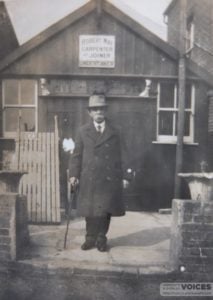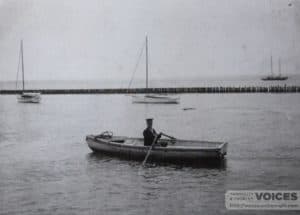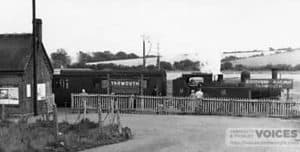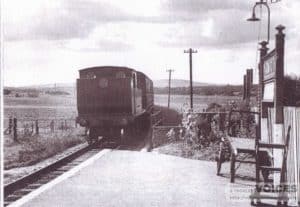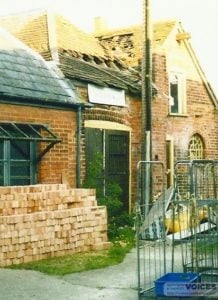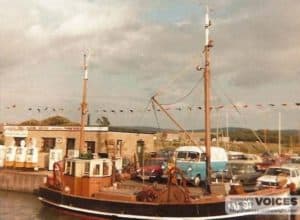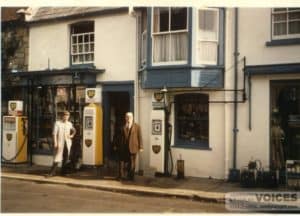Boat Building in Ommanney Road
When I worked for Cecil Doe we built some boats in what had been Bob May’s undertaker’s place there as well. Amongst them was the harbour launch that was down the harbour for years, the big one.
All his bits and pieces from being an undertaker he put up the end of the shed on a load of shelves and he had some black curtains that covered them all up. We were happily building boats in there. Bob used to come in every day and say: ‘How are you getting on nipper?’
We said: ‘Oh, we’re just doing so and so Mr May.’ And he’d say ‘ Ooh, look at that.’ Anyway, we built this one boat, it was what was called strip planning. It was built upside down and just sort of nailed together, and then we turned it the right way up. We did that one night because we had to cut braces that held the roof up so we had enough room to swing this thing round – put them all back in afterwards.
He came in the next day and he said: ‘ Where’s she gone?’ And we said, ‘Well this is her, she’s the other way up.’ ‘Well,’ he said,’ so she is.’
Once you’d done all this, you’ve got to clean the outside of the boat up. I sharpened up a load of planes and started work. I was down there underneath this boat and trying to reach up . When you’re laying on the floor trying to reach up, you need something to push under your head. I thought, I know, there’s those little stools that Bob used to put under the heads in the coffins, – perfect – they went from about two inches high to four inches high. I went along and opened the curtains and there they were – ah, just right. So I’m under there working away, and I hear the door open and in he came.
‘ Alec, are you there?’
‘Yes,’ I said, ‘I’m underneath, Mr May, I’m just scarfing her off.’
That moustache came gradually down over this boat and he made this noise, and I thought he was having a heart attack. I said ‘Are you alright Mr May?’
I got out from underneath, and he was by this time, down on one knee, and – I don’t know how old he was – it was quite an event for him to get down that far, and he said to me, ‘Do you know what you got your head on, Alec?’
I said, ‘Yes, it’s one of your little coffin stools, Mr May.’ And he said, ‘Well as long as you know.’ Alec Cokes b 1945

